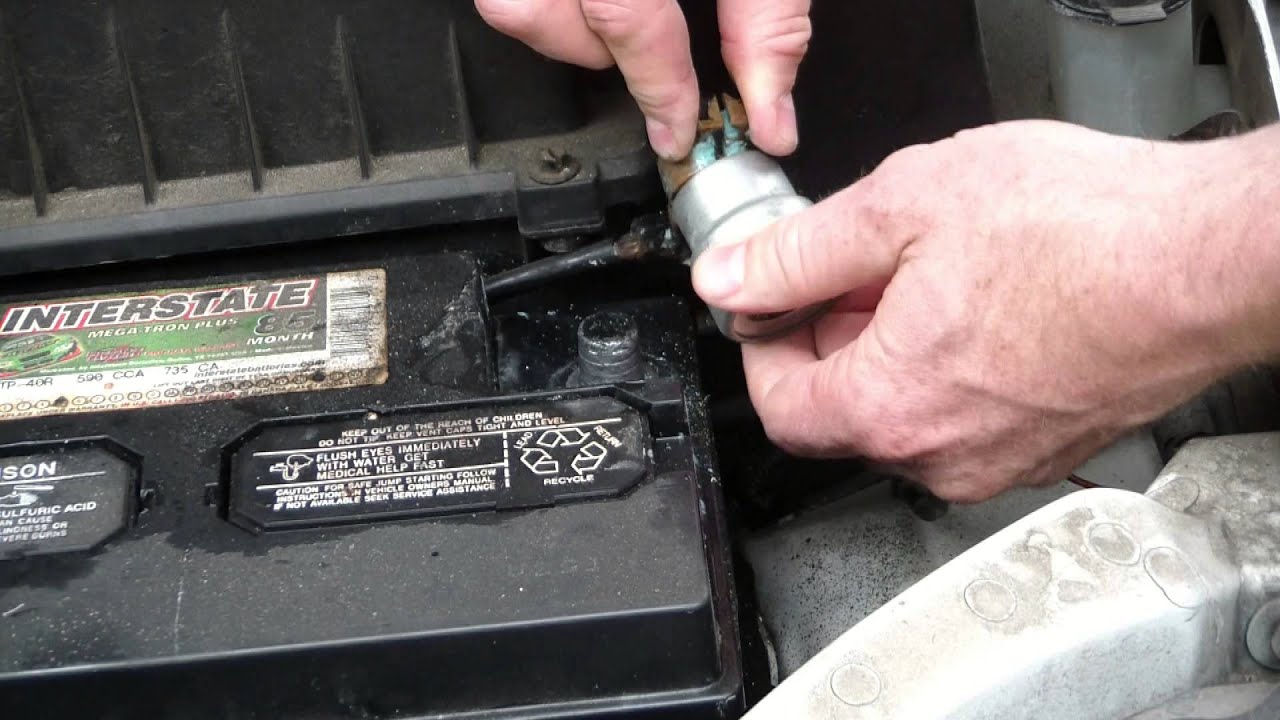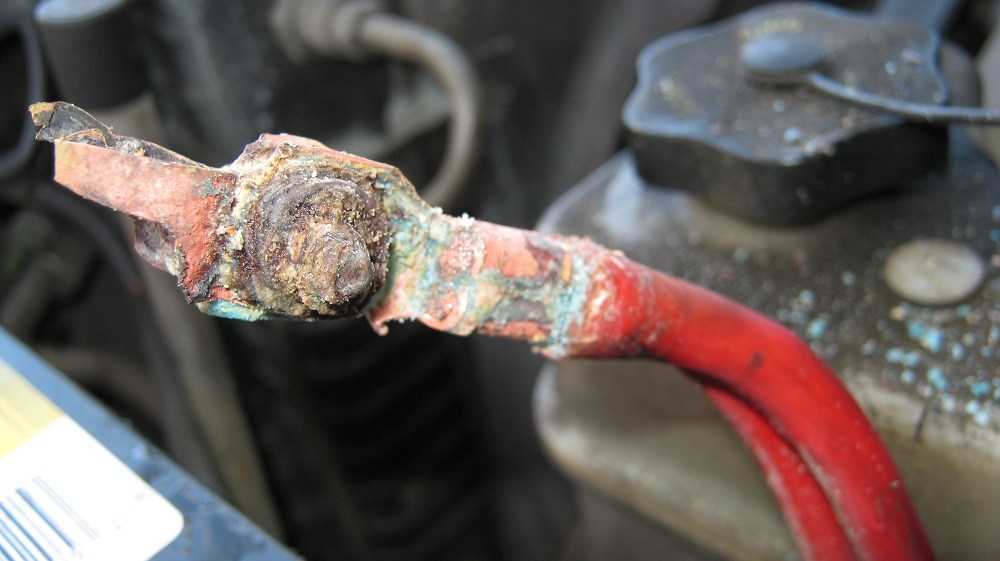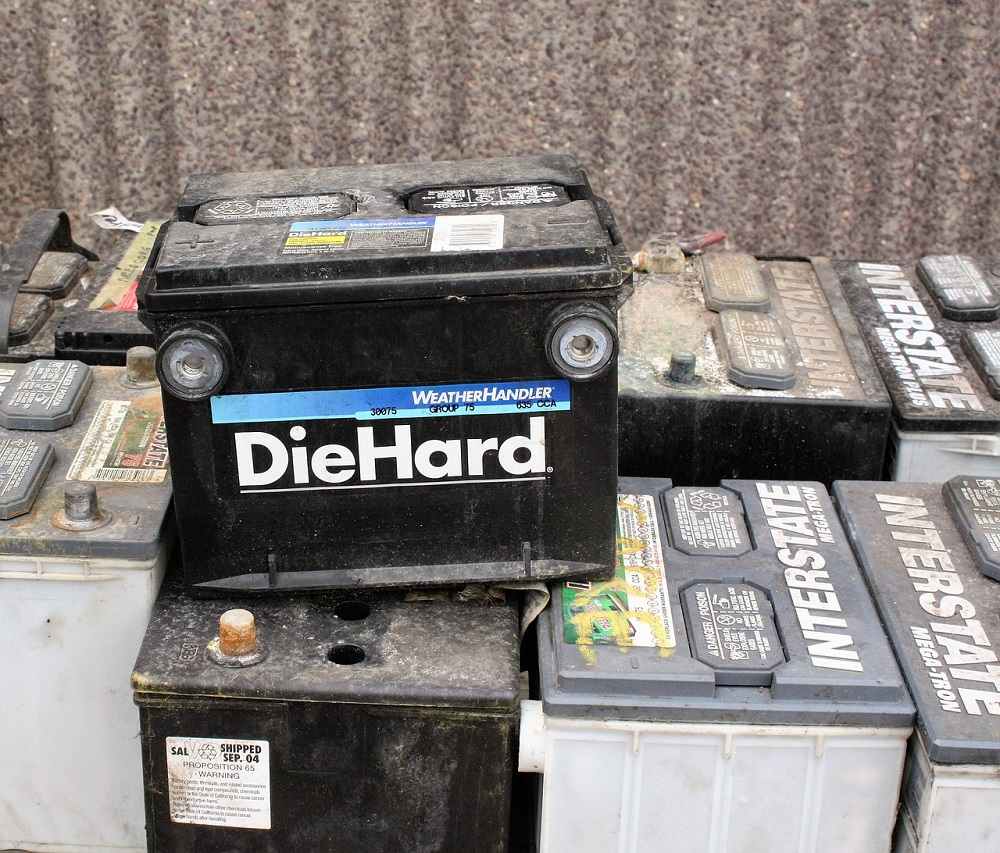Car cleaning is a part of the weekly or monthly routine for most car owners. But, the things that stay under the hood, such as battery terminals, need special if not regular maintenance. Over time, all battery terminals suffer from corrosion, and cleaning them should be a part of the scheduled maintenance task. By cleaning the battery terminals, you can keep the battery healthy and make it perform better for a longer time. So, we are here to guide you through the procedure of how to clean battery terminals.
Contents
Reasons for Cleaning Battery Terminals
Battery terminals are another name for the electrical contacts that connect a charger or load to a battery (single cell or multiple-cell). These terminals come in a variety of sizes and designs. Regardless of the types, all of them are prone to corrosion.
Usually, the hydrogen gas releasing from the battery acid is the main reason behind the corrosion. After mixing with other elements of the atmosphere, it generates rust on the terminals.

If there is corrosion on the negative terminal, it means the battery does not have sufficient charge. On the other hand, rust on the positive side means an overcharged system. Since the battery usually remains in an undercharged condition, you are more likely to see the rust on its negative terminal.
How to Clean Battery Terminals
The process does not require anything but some simple tools/items and lots of patience. Follow these steps for how to clean car battery terminals:
Inspect the condition
First and foremost step of how to clean battery terminals is to inspect the battery condition by lifting the car hood. For that, there is no need to remove the battery from the car.
Locate the battery under the car hood, usually on the front-left side of the engine block. Check for any visible crack or sign of leaking battery acid on the battery. If there is any crack on the battery case, replace the battery without any delay. If there are no such issues, clean the terminals.
Precaution: Put on a vinyl glove before cleaning the battery terminals.
Check the cables and clamps
Lift the plastic covers to reveal the battery terminals and the clamp interface. Assess the battery cables and clamps to have a clear idea about the level of corrosion. If there is any white, ashy substance around any of the battery posts, that is corrosion.
For slightly corroded terminals, go ahead with the rest of the steps. For an extensive level of rust or damage, replace the clamps or cables to avoid any issue.
Clean the corroded terminals
This step involves how to clean corroded battery terminals. Disconnect both the negative and positive clamps from the battery before cleaning the terminal.
Use a wrench to loosen the clamp nuts. After that, remove the negative clamp first. Only after that, move on to remove the positive clamp. If you find it hard to remove the clamps due to excessive corrosion, use pliers. In that case, do not touch the car frame or the battery while working to avoid a short circuit.
Take a small bowl and mix 2 to 3 tablespoons of baking soda with one tablespoon (15 ml) of distilled water to make the battery terminal cleaner. Stir the ingredients until all the baking soda bits fully dissolve to make a thick paste.
Apply the paste on the battery connections with either a damp rag or an old toothbrush. While applying, be careful not to get it into other components of the car.
Rub on the corroded or dirty parts of the battery terminals. Once the baking soda paste starts to react with the corrosion, it will form bubbles and foam. Wait at least 5 to 10 minutes to let the paste loosen the corrosion.
Clean a high-level of corrosion
How to clean battery terminals if it has high-level deposits. Well, you need to scrape them off with the sharper edge of a used butter knife. Firmly hold the blade at a 45-degree angle along the battery surface and press it downward to remove all the bits of corrosion. After removing the maximum deposits, work on the remaining rust with steel wool or a wire brush.

This step requires you to wear vinyl dishwashing gloves, especially while scrubbing the corrosion with steel wool. Vinyl gloves work as the best protector of hands against harmful caustic agents.
If interested, purchase some special “battery post” and “battery clamp” brushes from the nearest auto parts stores. But a general steel brush usually works fine in most cases, and there is no need to purchase the special ones.
Rinse the terminals
Once the scraping is complete and there is no more foaming, it is time to rinse off the terminals. Pour 2 cups or around 500 ml of distilled water over the battery terminals. Baking soda can be detrimental to battery life, so do not let the rinsed paste sip through the battery vents.
Wipe the terminals dry
Take a dry, clean rag and wipe the terminals thoroughly with it before connecting it to the vehicle. The rug should not have any oil or grease on it. Rub the terminals 2 to 3 times to ensure that these are completely dry. Do not use paper towels here. Paper shreds and remaining bits will stick to the terminals.
Safeguard against corrosion
To avoid corrosion, apply petroleum jelly on the clean and dry battery terminals. Smear a thin layer of jelly on the positive and negative terminals with your fingers. The vinyl gloves should be on during this step. Petroleum jelly is hydrophobic, so its application will prevent future corrosion on the cat battery terminals.
SEE MORE
Reconnect the terminals
As the cleaning is over, it is time to reconnect the terminals and restore the electrical connection. During reattachment, you need to reattach the positive clamp to the battery first and tight it using a wrench. Then, move on to reattach the negative clamp to its designated battery terminal. Use a wrench here as well to put that clamp in place. After reattaching, change the old plastic shields for covering the clamp/terminal junction.
Conclusion
Keeping the car battery terminals clean will not only increase the battery’s lifespan but also retain its efficiency. For this reason, you should know how to clean battery terminals. Also, do not forget to take the necessary precautions before proceeding to clean the terminals.



